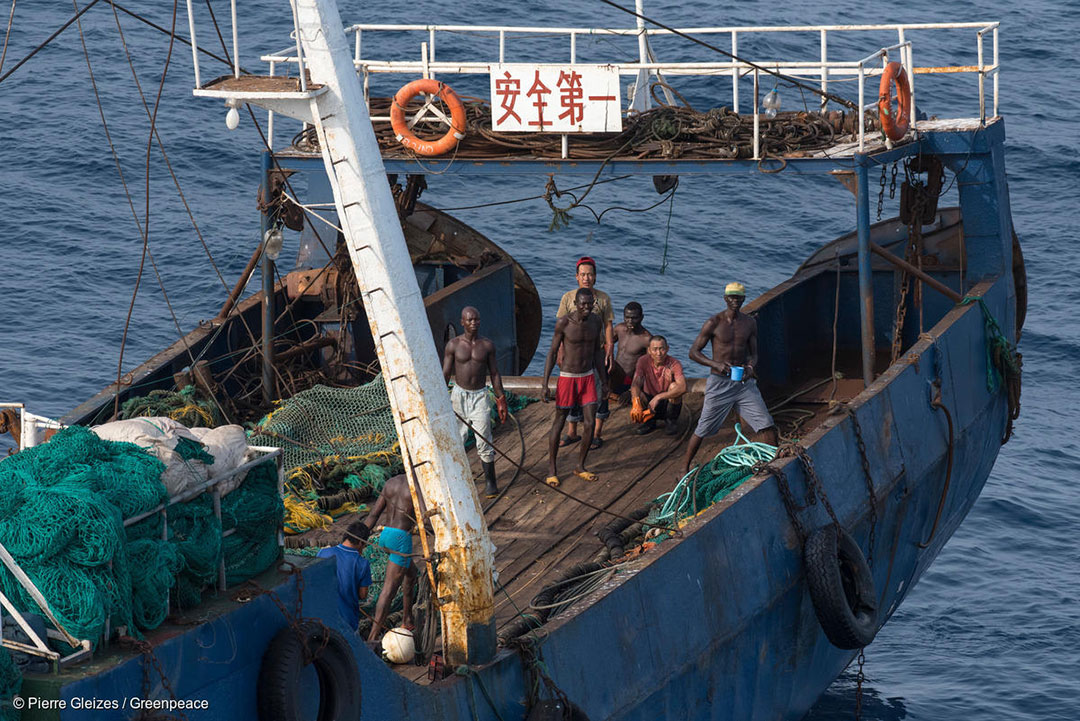Fujian Fishing Subsidies Spell Trouble for West African Waters
ADF STAFF
The Chinese province of Fuji has announced a new wave of subsidies to expand its distant water fishing fleet from 600 to 650 vessels.
The plan, reported by SeafoodSource, was revealed as China is accused of stalling negotiations with the World Trade Organization (WTO), which has worked for decades to ban subsidies that contribute to overfishing. Unchecked fishing, some of it illegal, threatens marine life, ecosystems, food security and the livelihoods of artisanal fishermen in West Africa.
Among the Fujian fishing companies that would benefit from the new subsidies is Poly Hong Dong, which has a history of violations.
Poly Hong Dong’s largest overseas base is in Mauritania, where a vessel owned by the company rammed a Mauritanian artisanal fishing vessel last year, killing three of its crew. The company exports 10,000 tons of seafood a year from Mauritania, while also producing fishmeal.
Despite those issues, Mauritania last year accepted an $87 million Chinese loan to build a new fishing port just north of Nouadhibou.
Fujian companies are also active in Guinea, Guinea-Bissau and Senegal, according to Yann Yvergniaux, senior analyst at Trygg Mat Tracking, a nonprofit research organization specializing in illegal, unreported and unregulated (IUU) fishing and other maritime crimes.
Up to 90% of Senegal’s fisheries already are fully fished or facing collapse, according to the United Nations, the result of decades of IUU fishing and damaged ecosystems.
In West Africa, Fujian companies often resort to flying the flags of a country under which a ship is registered, instead of the country of the ship’s owner, to avoid financial charges or restrictive regulations.
“They [also] establish company structures that will allow them to operate as local businesses and access resources that are not accessible to foreign vessels,” Yvergniaux told ADF in an email. “But very often the companies that beneficially own the vessels will continue to gain access to State subsidies in China — like fuel subsidies. In some instances we are very close to what could be called a double registration or double flagging practice, to secure access to fisheries on the one hand, and subsidies on the other.”
While dwindling fish stocks forced China to clamp down on domestic IUU fishing, the nation has long opposed attempts to limit subsidies for fishing on the high seas. No other nation spends more on fishing subsidies than China, which paid $7.2 billion — about 21% of the global total — in 2018, ScienceDirect.com reported.
China also commands the world’s largest distant water fleet and is the world’s worst IUU fishing offender, according to Global Initiative Against Transnational Crime.
Maritime security experts warn of dire consequences if a WTO agreement on subsidies isn’t reached soon.
“There is urgency now, because even if we take action now, we still have some more years before we start to see the full impact of the agreement, and it also takes years for those overexploited fisheries to come back,” Kathryn Matthews, chief scientist at Oceana, a nongovernmental organization, told Mongabay, an environmental science news platform. “We can’t keep putting this off. We will eventually run out of runway and end up falling off a cliff.”


Comments are closed.